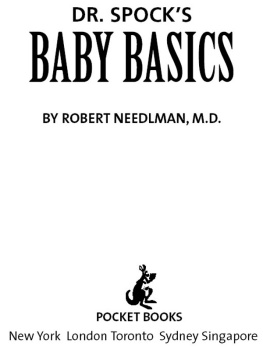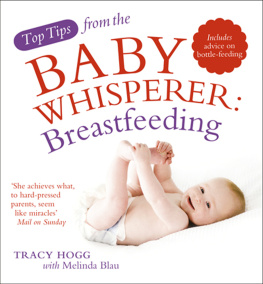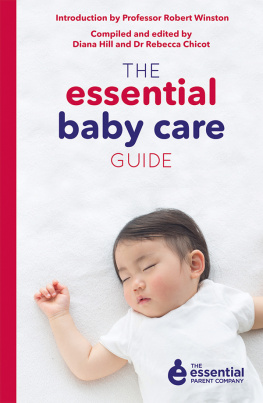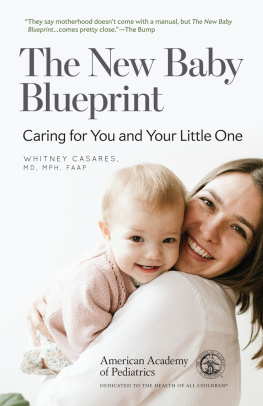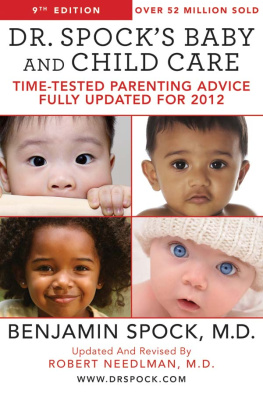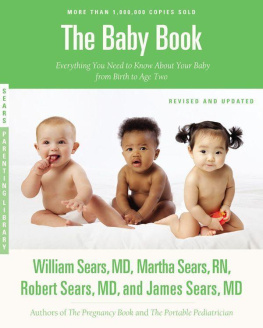Books by Benjamin Spock, M.D.
Dr. Spocks Baby and Child Care
Dr. Spock on Parenting
Dr. Spocks The First Two Years
Dr. Spocks The School Years
The ideas, procedures, and suggestions in this book are intended to supplement, not replace, the medical advice of your own physician. All matters regarding your childs health require medical supervision. Consult your physician before adopting the medical suggestions in this book as well as about any condition that may require diagnosis or medical attention.
The authors and publisher disclaim any liability arising directly or indirectly from use of this book.
Copyright 2003 by The Dr. Spock Company
All rights reserved, including the right to reproduce this book or portions thereof in any form whatsoever. For information address Pocket Books, 1230 Avenue of the Americas, New York, NY 10020
POCKET and colophon are registered trademarks of Simon & Schuster, Inc.
Acknowledgments
A book like this one grows out of many years of experience, and so there are many people to thank. Thanks to Barry Zuckerman, M.D., now professor and chairman of Pediatrics at Boston Medical Center, for convincing me to train in developmental and behavioral pediatrics, and then supporting my growth and learning with unmatched mentorship. Thanks, too, to Steven Parker, M.D.; Margot Kaplan-Sanoff, Ed. D.; Deborah Frank, M.D.; John Kennell, M.D.; Karen Olness, M.D; and many other colleagues at Boston University and Case Western Reserve University. You have all taught me so much.
This book would not have existed without the vision, expertise, and hard work of many at The Dr. Spock Company, and, in particular, David Markus, who had the original idea, and Mona Behan, whose skillful editing and keen insights have contributed both polish and depth. The book is stronger for the meticulous, knowledgeable input of Lynn Cates, M.D. Id also like to thank Mary Morgan for bringing the spirit of her husband of many years, Dr. Benjamin Spock, to us every day.
Thanks to my mother, Gloria Needlman, an early childhood educator who continues to teach me about children and parents; to my wife, Carol Farver, M.D., a pillar of support and steady common sense; and to our daughter, Grace, whose growing up has been an inexpressible blessing, and quite a lesson as well.
Contents
Introduction
I am a baby watcher. Put me in a crowded place like a restaurant or an airport, and I instantly find the infant who is just discovering the world beyond his mothers arms, or the toddler who is scaling the seats like a climber challenging Everest. I watch how babies and their parents work together, sometimes smoothly, sometimes with friction. Im always very curious, and I often find a way to start up a conversation. Talking with parents about their babies is what I do best.
As a pediatrician, I try to listen more than I talk. When parents come to me with concerns, they usually have a good idea of what they need. My first job is to convince them that I am willingeager, reallyto listen. After that, we work together to make sense of the situation. I dont believe in telling parents what to do. If I can shed new light on an old problem, parents usually dont have much trouble finding a solution that works for them.
This attitude is reflected in this book, as Ive tried to write it the way I talk with patients: directly, in plain language, but without skimping on the content. The subject matter I tackle is simple, basic stuffsleeping, feeding, comforting, and hygienebut in my years of practice, I have been struck by how often its everyday child-care issues, not major medical problems, that concern the parents of my young patients. A mom worries that she isnt providing adequate breast milk for her baby, a bleary-eyed dad wonders why his five-week-old infant isnt sleeping through the night yet, a couple wrestles with the thorny cloth-versus-disposable diaper debate. Baby Basics is designed to address some of these common and essential concerns, to give parents the information and confidence they need to tend toand enjoy!their infants and toddlers.
Ive tried to provide plenty of practical advice as well as insights into babies developmenttheir abilities at different ages and the challenges they faceso that, as a parent, you can make informed decisions about whats best for you and your family. Ive also tried to point out how everyday tasks such as feeding, bathing, and putting your baby to sleep are opportunities for emotional and intellectual growth. Not that every single minute needs to be packed full of meaningful learningthat would be too much pressure for any parent or babybut Ive tried to give you the facts you need so that you can reflect, from time to time, on the truly amazing journey you and your baby are taking.
The information in this book comes from several sources. I trained in general pediatrics at Boston City Hospital in the 1980s, and then underwent an additional three-year fellowship in developmental-behavioral pediatrics. This field sprang from the work of enlightened pediatricians such as Benjamin Spock, who was one of the first doctors in the United States to combine knowledge about childrens physical health with insights into their mental and emotional development. Dr. Spock understood that parents care about their whole children, their heads and hearts, not just their muscles and bones. The words in this book werent written by Dr. Spock, but the whole approach to thinking about children and their parents was inspired by him.
In fact, Benjamin Spocks timeless philosophy is the bedrock of The Dr. Spock Company, which was founded by a new team of pediatricians, obstetricians, and other experts to bring todays moms and dads the latest parenting and child-health information and advice. I have been vice president of developmental and behavioral pediatrics at the company since 2000, and my experiences have brought me a new kind of interaction with parents. As a staff writer for the companys website, drSpock.com, Ive been able to contribute articles on a wide array of topicseverything from how to choose a preschool to how to explain the events of September 11 to children. Ive also had the opportunity to answer parents questions as part of our Ask Our Experts Q&A forum, and participate in Parent Sense , a series for public television that The Dr. Spock Company co-produced. Knowing that I was reaching a much larger number of families than I ever could have in any medical practice was both humbling and energizing.
While I was reading about the great ideas in child development and getting hands-on training from some of the very best developmental-behavioral pediatricians anywhere, I had another, equally influential teacher: my daughter, Grace. Grace taught me about the simple satisfaction that comes from bathing a baby, the fun of introducing a child to new and different foods, and the joy of taking long walks with an infant riding high in a backpack. My daughter also taught me a lot about sleepless nights and the many ways to calm a crying babyor at least try to. Grace is now 13, and Im still learning from her.

